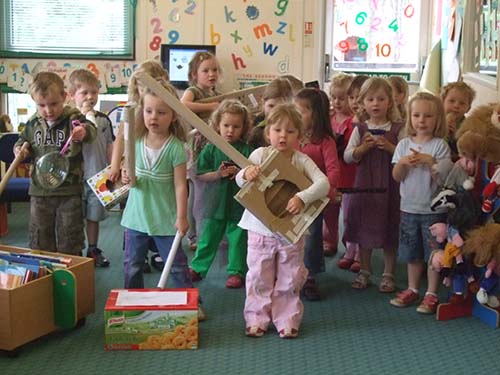I try to tailor each of my lessons to be as unique and individualized as the singers themselves. But, sometimes, there are a few things that I "preach" across the board. Here are the 13 things I say to each of my students.
Long Spines and Wide Bodies
I rarely tell a student to stand up straight. It's amazing what those words, combined with the word 'posture', do to a person's body. Instantly they get as straight as possible and put an enormous amount of tension in their shoulders, back and neck. Instead, I opt for asking them to stand with a long spine (and lifted chest). I also add standing with a wide body to that scenario. It's pretty easy for a person to raise their center of gravity into their chest as they lengthen their spine, so I like to also remind them to get wide in the body as they get taller in their spines. This allows for the center of gravity to stay...well....centered.
Open Your Mouth
Singers are seldom able to tell how much mouth space they have until they look in a mirror. Many of my students, especially the younger ones, feel as though their mouths are open but in reality may only have less than a fingertip worth of space. I always like for singers to practice in front of a mirror, and remembering to open their mouths is a great reason to do so. Another trick, albeit somewhat of an old trick, is to take a CD and turn it to the reflective side. Have the student put the CD in front of their faces, and open the mouth "around" the hole of the CD. This is a great place to start for younger singers. REMEMBER, if you don't open your mouth, all of that beautiful sound just gets stuck!
Open Throat Space
If you start your inhalation with a tight throat space, your vocal line will have a tight throat space. Imagine a giant glazed donut (my favorite) sitting in your throat. Now imagine pouring milk through that donut hole (this resembles your inhalation/exhalation). *Warning-this will not only increase your throat space, but will also make you hungry!
Take Low Breaths
It's not just about how much air you take in, but where the air goes. You can take a large shallow breath, but that air won't actually support your sound. Put your hands around your waist, with your rib cage sitting at the top of your hands, and feel your center expand.
Fast Spinning Air
You wouldn't stop pedaling your bike before you approach a large hill right? You would pedal faster! Same goes for your air. Let the air move faster, and increase in it's speed throughout your phrase. That way you won't fall backwards down the hill (or, as in our case, have an unsupported ending to your phrase).
Don't Let the Car Run Out of Gas Before You Get to the Gas Station
You never want to run out of air, so how you control the inhalation/exhalation cycle is really important. Make sure you always fill up on your inhalation (even if you just need to "top it off") and use the air wisely, making sure to take a breath before all your air runs out. *tricks in case you do run out of air before you can take a breath: 1) sing louder (this gets the air spinning faster, 2) Put on a really big consonant at the end of the phrase. This helps to hide the fact that the end of the phrase was less than supported.
Balance Your Registers
You can't sing in chest voice all the time. We have different registration areas for a reason and we need to use them. Balancing the registers is a great tool, and highly effective when wanting a versatile sound for different styles of music.
Choose Your Placement
Placing the tone in different parts of the mouth is another useful tool in making sure our sound is stylistically appropriate with the music we are singing. Placing the tone in the back of the mouth is useful in choral setting, while placing the tone in front is more ideal for pop or theatrical music.
Specificity in Vowels
Specificity is a word I stole from my voice instructor in graduate school, and it's a great word. In this instance I'm asking you to be specific as to which vowel sound you are singing. Often singers will come up with all sorts of permutations of a vowel, especially when singing on a sustained pitch. Choose your vowel wisely, and make sure you stay true to the sound.
Consonants Count
I could never stress enough the importance of diction. Not only is it the tool that allows the voice to be a completely unique instrument (ours is the only one that produces lyrics), but we use consonants for many reasons. Obviously, it's important for the listener to understand our words, but we also use the consonants for vocal production. Exploded consonants allow our tone to move forward, while imploded consonants hold our tone in the back of the mouth. We also use consonants, specifically unvoiced consonants, as rhythmic elements in the music.
Give Motion to Your Phrases
Singing note to note, and word to word, is pointless. Make music out of your lines; give them motion. Music won't make your body want to move if it isn't moving itself.
Tell The Story
I often ask my students "What does this mean?" or "What's the point?". Every line of text, every musical arch has a meaning. It's the singer's job to communicate that meaning or that story. Without meaning, the words are just boring, nonsense syllables.
Enjoy Your Voice
It's the only one you have and you can't trade it in for a newer/better model. Love your sound and love your singing! Be passionate about what you do!




